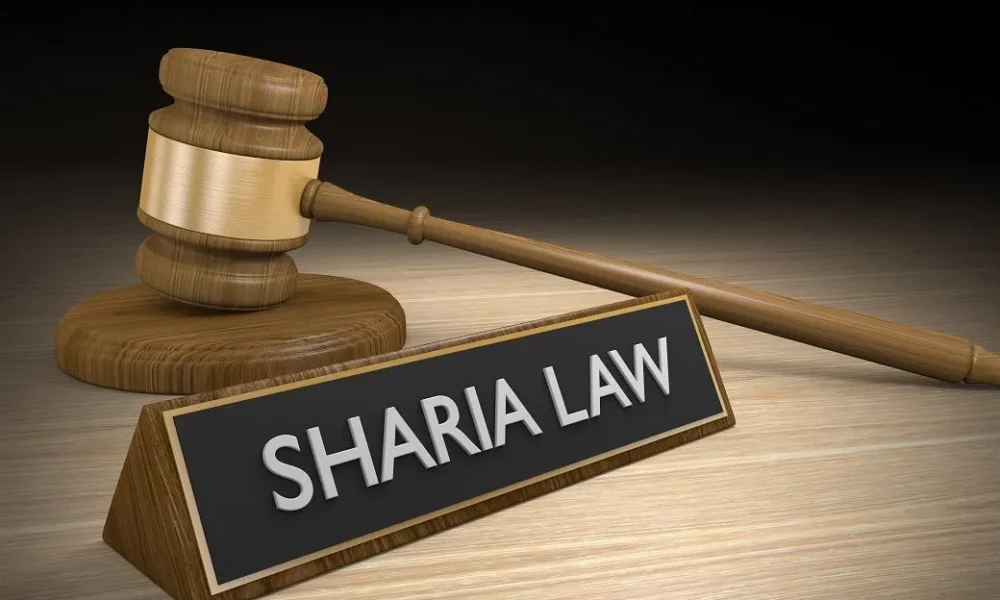What is Sharia Law – Basic Guide!

The majority of the nearly fifty countries with a Muslim majority population have legal systems that incorporate sharia, which Muslims believe is divine guidance on various aspects of life. Certain countries have legislation that imposes what critics view as harsh penalties for crimes, or impose excessive limitations on the rights of women and minority communities. Nonetheless, governments have varying interpretations and applications of sharia, leading to misconceptions about its role in legal systems and individual lives.
Sharia is an Islamic belief system that includes numerous sects, variations, or sub-school of thought within it. Due to this, sharia law does not have a straightforward definition and description. Nevertheless, a basic explanation of sharia law can be defined as: an Islamic legal and spiritual framework that relies on human understanding of God’s divine guidance for humanity.
Sharia Law in Islam
Sharia represents the Islamic or holy law. It is a term in Arabic that signifies “the way” or “the path leading to water.” In Islam, sharia refers to the divine instructions that Muslims follow in order to lead moral lives and strengthen their relationship with god. Sharia comes from two primary sources: Quran, believed to be the literal word of god, and hadith – numerous sayings and actions associated with Prophet Muhammad (SWT) that together make up the Sunnah.
It is a religious law that provides guidelines for the spiritual, mental, and physical conduct that Muslims are required to abide by. Sharia law, considered a divine mandate for Muslims, is essentially the legal system of Islam.
Sharia is a dynamic entity. The understanding and uses of it have evolved and are still evolving. Sharia is not a single entity or concept. There are different Muslim communities, each having its own interpretation of sharia. It is the perfect law of god as understood by Muslim scholars throughout history, focusing on justice, equality, and compassion.
In Islam, four major sources of sharia law are universally accepted.
The Quran is the sacred text that transmits Allah’s messages delivered by prophet Muhammad (SWT), which are eternal and applicable to all.
The hadith, also known as the narrative of the Sunnah of the prophet, forms the guidelines of belief for the Muslim community.
Ijma consists of the viewpoints of knowledgeable Islamic scholars regarding legal matters.
Qiyas involves comparing challenging doctrinal questions with past cases resolved by the holy book and Sunnah
Sharia law includes legal, moral, and ethical guidelines. It categorizes every action of mankind into these five groups:
Obligatory (wajib, fard), refers to what the lawgiver (Allah) has mandated as necessary. Mandatory tasks may include performing the five daily prayers, fasting during Ramadan, giving zakat for those required to do so, and undertaking the hajj pilgrimage to the sacred house for those who can afford it. The person who follows the directive will be rewarded, while the one who disobeys deserves punishment.
Recommended acts, also known as Mustahab, Sunnah, Masnun, or Nafl, are prescribed by lawgiver but are not mandatory.
Some suggested actions are Qiyam Al-Layl, extra Sunnah prayers, fasting three days per month, fasting six days in Shawwal, giving to the needy, and routinely reciting Quran. The person who carries out the task will receive a reward for following through, while the person who does not will not face any consequences.
Forbidden (Haram), is something that the lawgiver has prohibited, it is mandatory to abstain from it.
Some prohibited actions are adultery, usury, alcohol consumption, disrespect towards parents, shaving the beard, and women revealing their beauty to non-mahram men without wearing hijab. One will receive a reward for obeying and refraining from forbidden actions, while the one who commits them should be punished.
Discouraged (Makruh), refers to actions that the lawgiver has prohibited, but do not require mandatory avoidance.
Bad actions include using the left hand for giving and taking, women participating funeral processions, socialising after ‘Isha’ prayer, wearing a garment that doesn’t cover the shoulder while praying, and praying extra prayers after Fajr until the sun is fully risen or after ‘Asr’ until the sun has set. One will be rewarded for avoiding a dislike action, while the other will not be punished for doing it.
Permissible (Mubah, Halal, Jaiz), refers to actions that do not have any specific command or prohibition associated with them.
Permissible activities include eating, drinking, buying, selling, travelling for tourism or seeking provisions, and being intimate with spouses during the night in Ramadan.
The phrase “to the deed itself” indicates the limitation on what is considered acceptable, as there may be a connected instruction that determines if it is permitted or not.
Sharia consists of three fundamental components which includes:
Aqidah encompasses every type of belief and faith in Allah that a Muslim holds.
Fiqh regulates the connection between man and his creator (ibadat) as well as the interaction between man and fellow man (muamalat). Muamalat encompasses political, economic, and social endeavors. Islamic finance, which deals with economic activities, is therefore connected to sharia principles through muamalat.
Akhlaq encompasses a Muslim’s conduct, mindset, and professionalism.
Although the directives regarding aqidah, fiqh, and akhlaq are set and cannot be altered, the directives of muamalat can be changed depending on circumstances, customs, time, and location. These directives pertain to contractual law transactions, criminal law, the judiciary, and Islamic finance, governing interactions between individuals.
Haleema Limited is the UK based Umrah agency that helps muslims all over the UK to perform Umrah and Hajj package 2025 with the help of Sharia guides. The muslims of Luton always welcome their services anytime.





